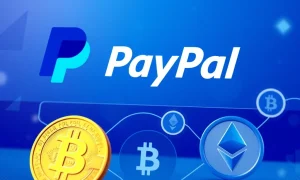Many startup founders dream of complete control over their payment systems, but building custom payment infrastructure often becomes a costly trap that drains resources and distracts from core business goals. White-label payments offer a smarter alternative that preserves branding while avoiding technical debt.
The Allure and Reality of Custom Payment Systems
Founders frequently pursue custom payment solutions seeking differentiation and control. They envision seamless branding and independence from third-party providers. However, this approach quickly reveals significant hidden challenges. Payment systems require constant updates for regulations, currency changes, and fraud prevention. What begins as a strategic advantage often becomes a perpetual development project.
Hidden Costs of Building Payment Infrastructure
Startups typically underestimate the true expense of maintaining payment systems. Costs extend far beyond initial development into ongoing compliance, security, and scaling requirements. Consider these critical areas:
- Development: Continuous upgrades instead of one-time builds
- Compliance: Expensive licenses and ongoing reporting
- Security: Constant fraud monitoring and prevention
- Talent: Specialist engineers and compliance officers
These expenses often reach millions annually, crippling runway and delaying product development.
Why White-Label Payments Solve Startup Challenges
White-label payments provide branded payment experiences without the development burden. Platforms like ecomcharge.com handle compliance, security, and infrastructure while maintaining your brand identity. This approach delivers immediate benefits:
- Weeks to market instead of years
- Predictable costs instead of escalating budgets
- Built-in regulatory compliance
- Professional fraud detection systems
- Seamless scalability for growth
Choosing the Right White-Label Partner
Selecting a reliable white-label payments provider requires careful evaluation. Prioritize platforms with proven reliability, scalability, and customization options. Ensure they offer responsive support and integration flexibility. The right partner becomes an extension of your team rather than a limitation.
Strategic Advantages of Outsourcing Payments
Startups succeed by focusing on their core value proposition, not infrastructure maintenance. White-label payments preserve precious resources for product development and customer acquisition. Investors prefer businesses that avoid reinventing payment systems and instead leverage proven solutions.
FAQs: White-Label Payments for Startups
What are white-label payments?
White-label payments are ready-made payment solutions that businesses can rebrand as their own, avoiding the need to build systems from scratch.
How much do white-label solutions cost compared to building custom?
White-label solutions typically cost 70-80% less than building and maintaining custom payment infrastructure, with predictable monthly fees instead of large upfront investments.
Can I still customize the payment experience with white-label?
Yes, reputable white-label providers offer extensive customization options for branding, user flow, and integration while maintaining underlying security and compliance.
How long does implementation take?
Most white-label payment solutions can be implemented in 2-4 weeks, compared to 6-18 months for building custom payment systems.
Are white-label payments secure?
Established white-label providers invest heavily in security measures, often exceeding what individual startups can implement, including PCI compliance and advanced fraud detection.
Can white-label solutions handle international payments?
Most professional white-label payment platforms support multiple currencies, payment methods, and international compliance requirements out of the box.








